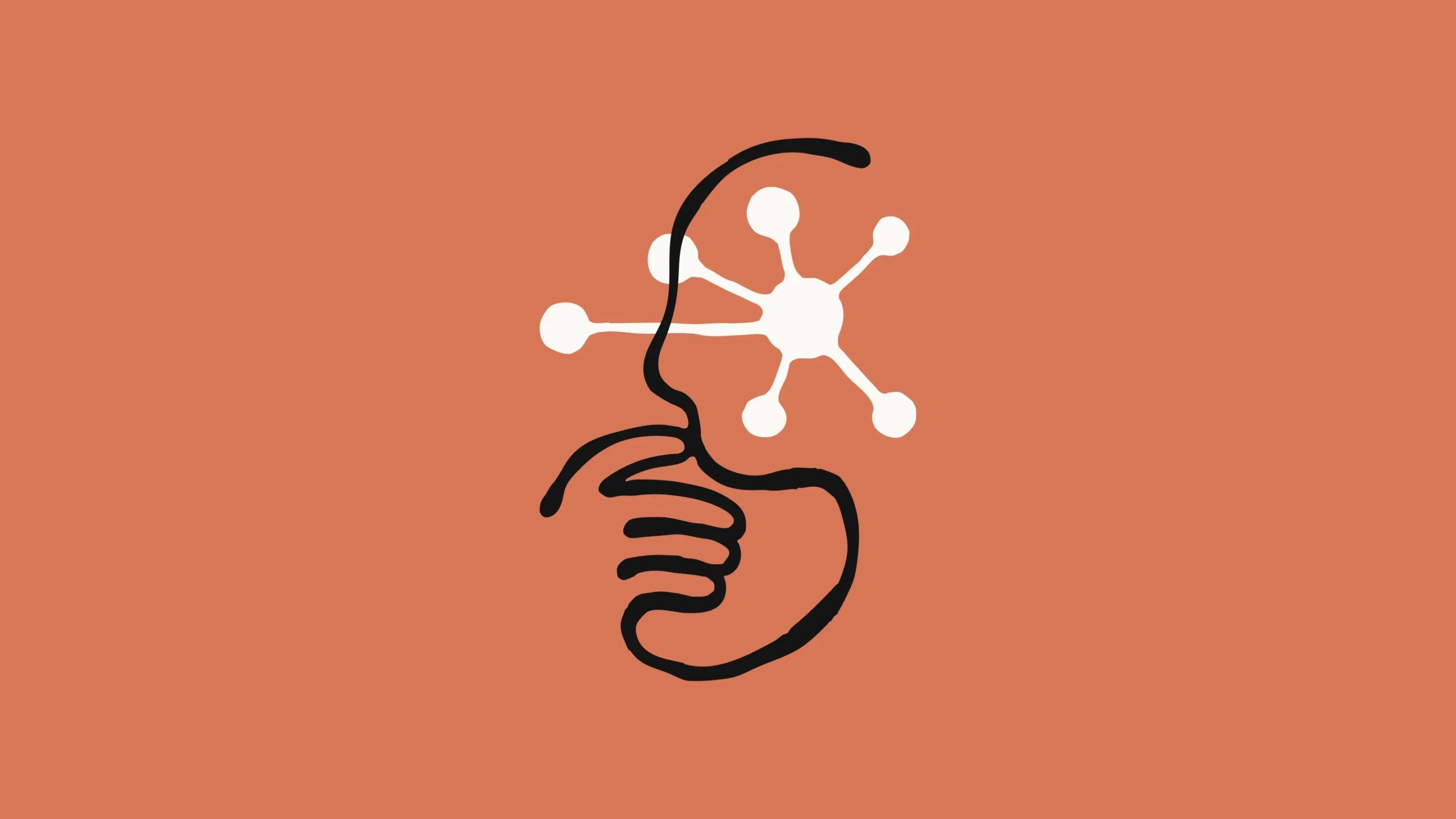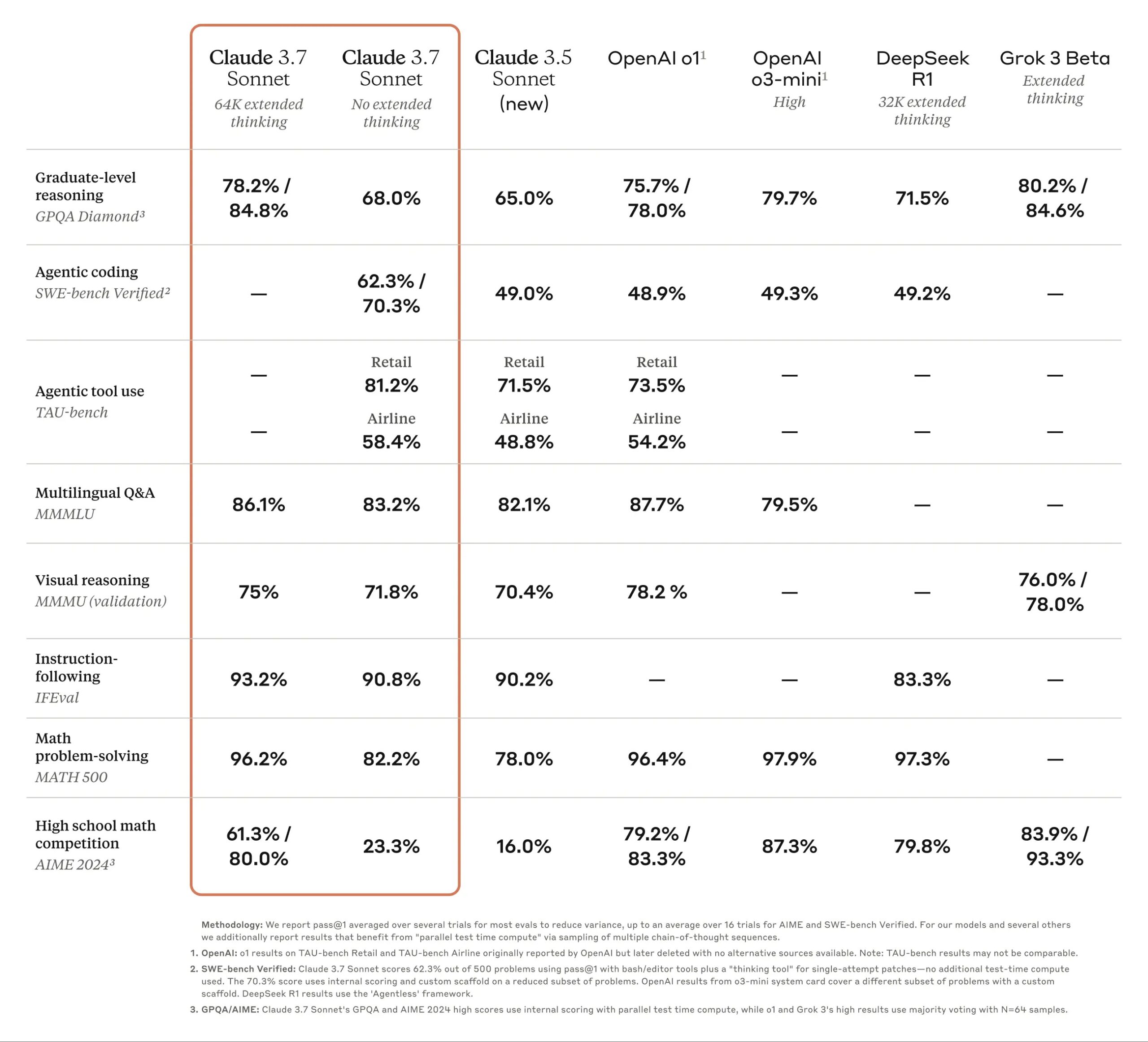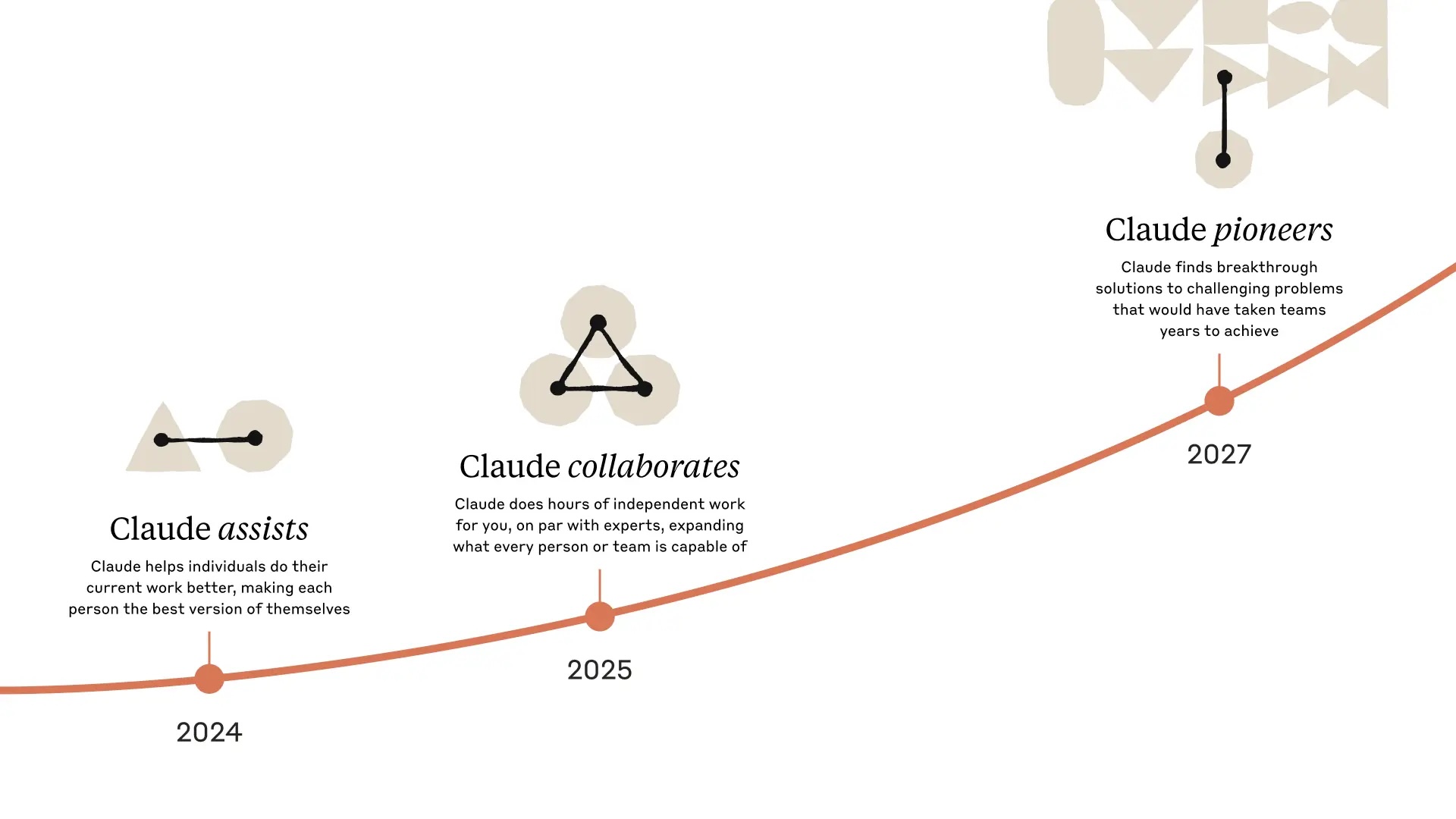Anthropic launches Claude 3.7 Sonnet hybrid AI model and Claude Code programming tool

Anthropic has taken a different approach from OpenAI with its latest release, introducing Claude 3.7 Sonnet as its first reasoning-enabled model that combines direct responses with extended thinking capabilities.
Claude 3.7 Sonnet builds on an upgraded version of Claude 3.5 Sonnet but adds a significant new feature: an "Extended Thinking" mode that allows the model to reason through its responses. According to Anthropic, reasoning should be an integrated capability of advanced models. Like OpenAI's reasoning models, Claude 3.7 Sonnet generates reasoning tokens. This release puts Anthropic ahead of OpenAI, which recently announced similar unified architecture plans for GPT-5.
Alongside the model update, Anthropic has introduced Claude Code, a command-line tool for agent-based programming. This tool allows developers to delegate complex programming tasks directly through their terminal. Claude Code is currently available as a limited research preview.
Users can choose when the model should provide immediate responses and when it should engage in extended thinking. In the extended thinking mode, the model reflects more deeply, improving its performance across mathematics, physics, programming, and many other tasks.
Through the API, users can control the "budget" in tokens, effectively managing the time and associated costs of the reasoning process. Anthropic says it focused on developing practical capabilities that reflect how businesses actually use LLMs.
Enhanced programming and debugging capabilities
According to Anthropic's initial testing, Claude leads the field in practical programming tasks, significantly outperforming other models in planning code changes and complex updates.

The company reports that Claude can build sophisticated web apps and dashboards from scratch where other models struggle. In evaluations, Claude consistently produced production-ready code with superior design and dramatically fewer errors, according to the official blog post.
Claude Code: A new approach to agent-based programming
Claude Code, available as a limited research preview, represents Anthropic's first agent-based programming tool. It can search and read code, edit files, write and run tests, commit and push code to GitHub, and use command-line tools.
Initial tests show Claude completing tasks that typically require over 45 minutes of manual work in a single pass, significantly reducing development time and effort.
Anthropic plans to continuously improve the tool by enhancing the reliability of tool calls, supporting long-running commands, and improving app rendering. The company aims to better understand how developers use Claude for programming to guide future model improvements.
Improved safety and response handling
According to the company, Claude 3.7 Sonnet makes more nuanced distinctions between harmful and harmless requests, reducing unnecessary rejections by 45 percent compared to its predecessor. Anthropic has conducted extensive testing and worked with external experts to ensure the model meets safety and reliability standards.
The company has prioritized safe and responsible AI use from the beginning, though this sometimes leads to surprising and questionable limitations due to Claude's cautious approach to prompts.
Allegedly still 2 years until AI breakthroughs
Anthropic sees Claude 3.7 Sonnet and Claude Code as crucial steps toward AI systems that truly augment human capabilities. The company predicts that by 2027, Claude will find "breakthrough solutions to challenging problems." Currently, it claims to save "hours of work" by performing at expert-human levels.
The company has also highlighted Claude's potential for agent-based tasks, recently demonstrating this with Claude Computer Use, which enables AI-supported control of software and operating systems.

Anthropic appears to be focusing primarily on the mid-tier Sonnet series. While Sonnet and the smaller Haiku were recently updated to version 3.5, the largest model, Opus, remains at version 3.
Anthropic's enterprise growth strategy
The release of Claude 3.7 Sonnet and Claude Code aligns with Anthropic's ambitious growth strategy. The company aims to reach revenue of up to $34.5 billion by 2027, a significant increase from the projected $3.7 billion in 2025.
Anthropic particularly wants to surpass OpenAI in the lucrative API business, targeting triple OpenAI's revenue by 2027. The company expects to become profitable this year.
Claude 3.7 Sonnet is now available across all Claude plans, from free to enterprise versions, as well as through the Anthropic API, Amazon Bedrock, and Google Cloud Vertex AI. The extended thinking mode is available on all platforms except the free Claude version, with pricing remaining unchanged.
AI News Without the Hype – Curated by Humans
As a THE DECODER subscriber, you get ad-free reading, our weekly AI newsletter, the exclusive "AI Radar" Frontier Report 6× per year, access to comments, and our complete archive.
Subscribe nowAI news without the hype
Curated by humans.
- Over 20 percent launch discount.
- Read without distractions – no Google ads.
- Access to comments and community discussions.
- Weekly AI newsletter.
- 6 times a year: “AI Radar” – deep dives on key AI topics.
- Up to 25 % off on KI Pro online events.
- Access to our full ten-year archive.
- Get the latest AI news from The Decoder.